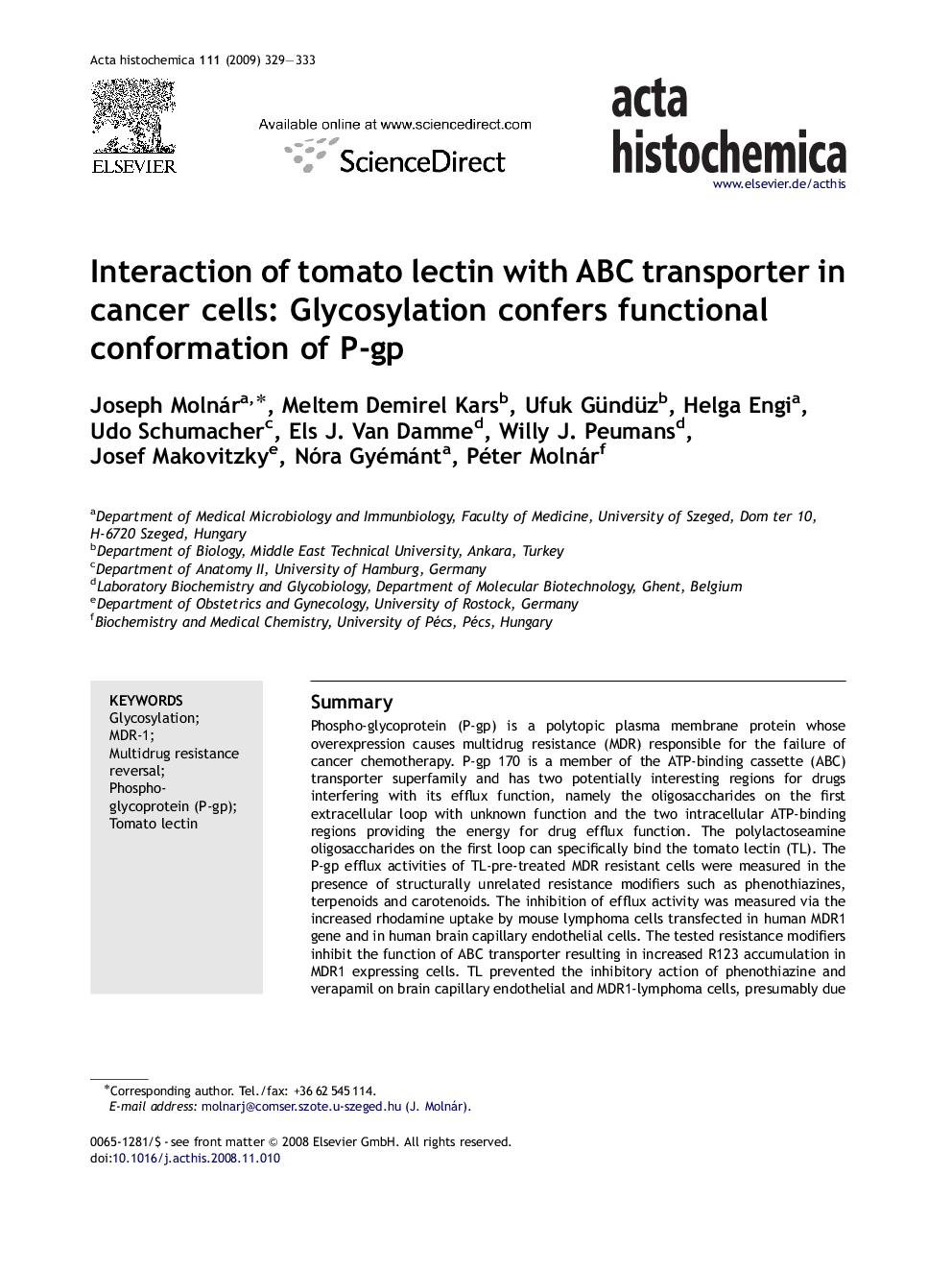| Article ID | Journal | Published Year | Pages | File Type |
|---|---|---|---|---|
| 1924278 | Acta Histochemica | 2009 | 5 Pages |
SummaryPhospho-glycoprotein (P-gp) is a polytopic plasma membrane protein whose overexpression causes multidrug resistance (MDR) responsible for the failure of cancer chemotherapy. P-gp 170 is a member of the ATP-binding cassette (ABC) transporter superfamily and has two potentially interesting regions for drugs interfering with its efflux function, namely the oligosaccharides on the first extracellular loop with unknown function and the two intracellular ATP-binding regions providing the energy for drug efflux function. The polylactoseamine oligosaccharides on the first loop can specifically bind the tomato lectin (TL). The P-gp efflux activities of TL-pre-treated MDR resistant cells were measured in the presence of structurally unrelated resistance modifiers such as phenothiazines, terpenoids and carotenoids. The inhibition of efflux activity was measured via the increased rhodamine uptake by mouse lymphoma cells transfected in human MDR1 gene and in human brain capillary endothelial cells. The tested resistance modifiers inhibit the function of ABC transporter resulting in increased R123 accumulation in MDR1 expressing cells. TL prevented the inhibitory action of phenothiazine and verapamil on brain capillary endothelial and MDR1-lymphoma cells, presumably due to the stabilization of the functional active conformation of P-gp. Our results indicate that the polylactosamine chains of P-gp are part of the functionally active protein conformation.
